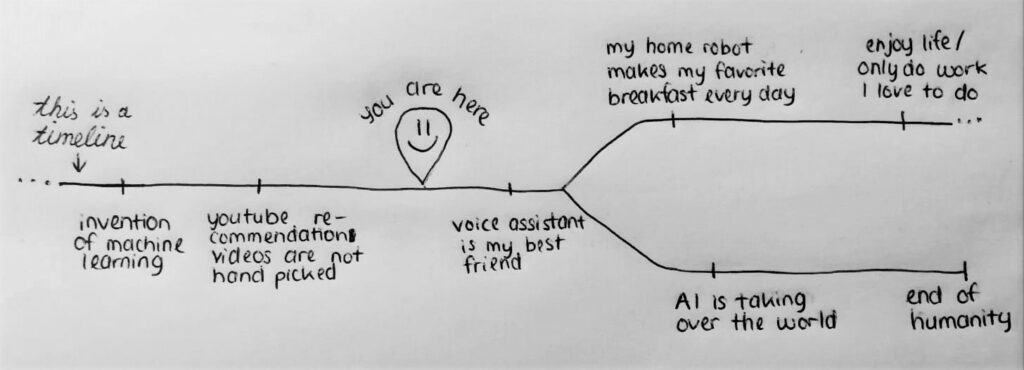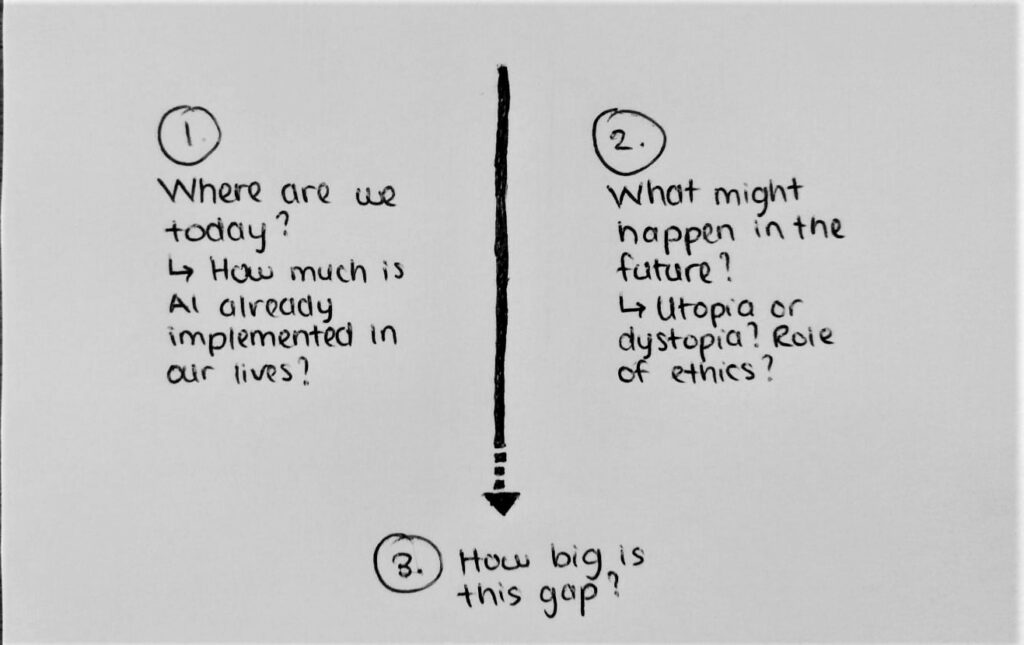Artificial intelligence (AI) is used in an enormous number of fields. It is guiding us through critical decisions in logistics, health, finance and which Netflix series to watch next. Even though we use AI a lot, many people do not know too much about it. What people think about artificial intelligence reaches from ‘my fridge sends me smileys’ to ‘the end of the world is near’. While it’s currently used how many apples there shall be in the stores to buy for next week, people are discussing about how it will take over the world and kill humanity.
On a scale from 1 to 10, how scared should we be now?
The word AI is a dangerous buzzword. It is so abstract and broadly used that people mix up a lot of things while still saying the truth. The term is so difficult to define because we already have difficulties to define what intelligence exactly is. We need to differentiate between machine learning, neural network and artificial intelligence to understand these broad assumptions about the technology.

Machine learning: In machine learning for example, the machine learns from its experience. Here you simply input data and it will output something. It will learn and understand after a while. But as soon as you change things a little, the system will fail. It is a technique to recognize patterns – it can differentiate, this is a cat or a dog or the word ‘hello’ and then do something according to what it already learned.
Neural network: A neuronal network is a method to achieve machine learning. It is how you might build the actual software of machine learning to do the process of learning. It is an algorithm which models how our brain works. When neurons are combined you can have a set of inputs. Those inputs are moving further down in the network until a certain threshold is met. This threshold can be tweaked and trained with a feedback system. You will tell the system what the desired result is. This creates the ability to recognize patterns. So, this whole process is a method for pattern recognition. There are other ways to do it too, but this is the most frequently used.
Artificial Intelligence (AI): While machine learning is about pattern recognition, AI is mimicking to be intelligent. A computer can exhibit being intelligent but without actually being intelligent. An often-used example is the mind game of a man in a room with lots of information on Chinese language. A Chinese man could be standing in front of that room, sending messages to the other. While the other one has all the data and time to answer the messages, the Chinese man outside would think he is writing to someone, who is familiar to the language. But the man is just exhibiting to speak Chinese without truly knowing Chinese language. Furthermore, we need to differentiate between a weak AI and a strong AI. A weak one exhibits the characteristics of being intelligent while a strong one could possibly form a consciousness and is self-aware. This brings questions of morality and ethics.
An interesting aspect of AI is shown in the work of the researcher Janelle Shane. In her TED talk she explains the power but also the limits of AI. She says: ‘The danger of artificial intelligence isn’t that it’s going to rebel against us, but that it’s going to do exactly what we ask it to do’. Computers and algorithms have no common sense. It’s difficult to think of every possible outcome, use case or scenario while programming.

The motivation behind this topic is to see what all the fuss is about. Getting a clearer image of what is going on with this technology and learn how I can maybe use it for my own work or how we can deal with it in our everyday life. We need to understand how much it is already embedded in our everyday life and understand where this might take us. I want to dig deeper into the concept of how it works, what it can do and where the limits are. Furthermore, it might be appropriate to listen to what no one else but Elon Musk and Bill Gates are warning about. Elon Musk is basically warning us that AI will take over the world and we need regulations before it’s too late. He talked about AI as ‘an immortal dictator from which we would never escape’. Maybe we should all panic now.